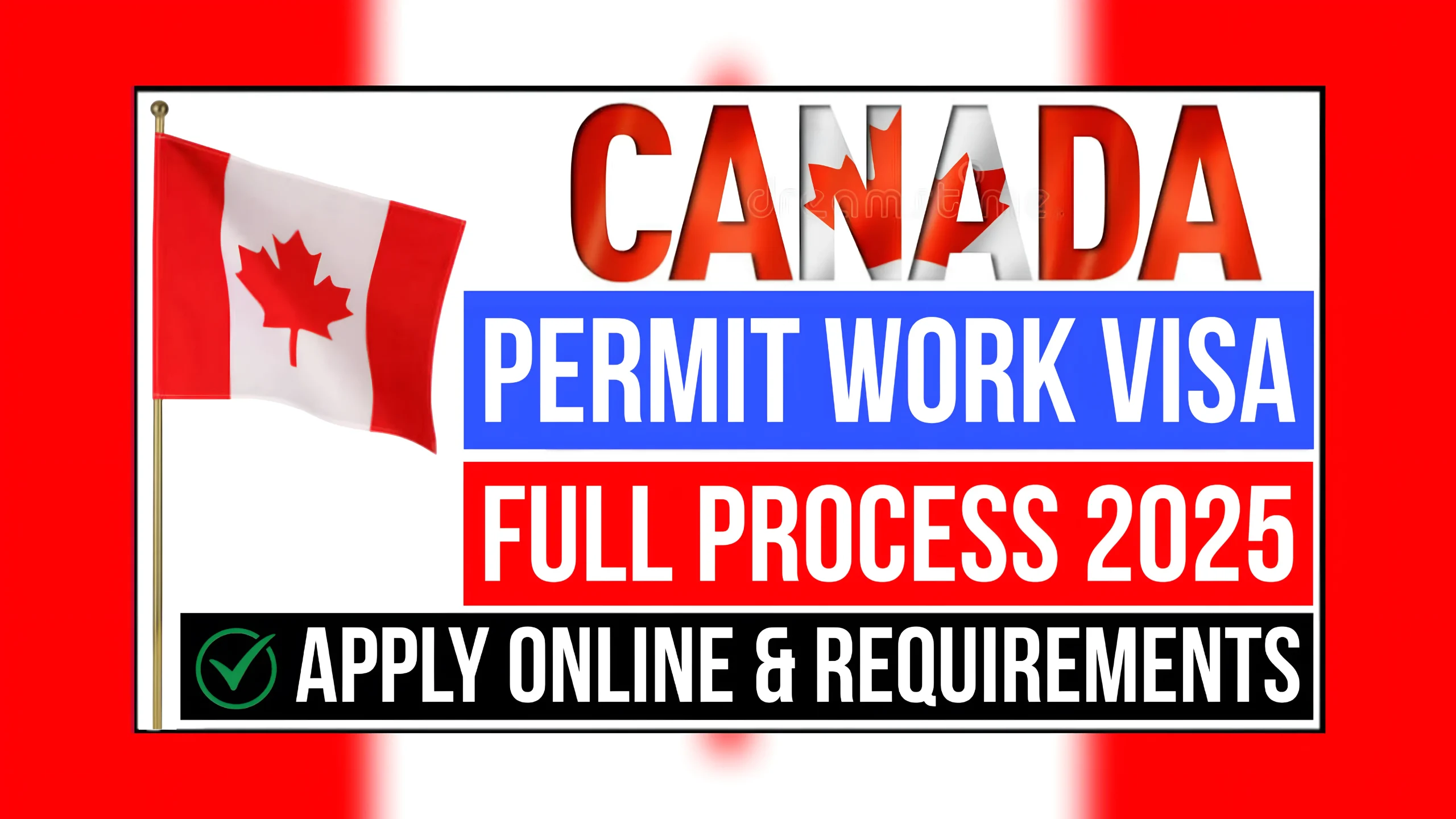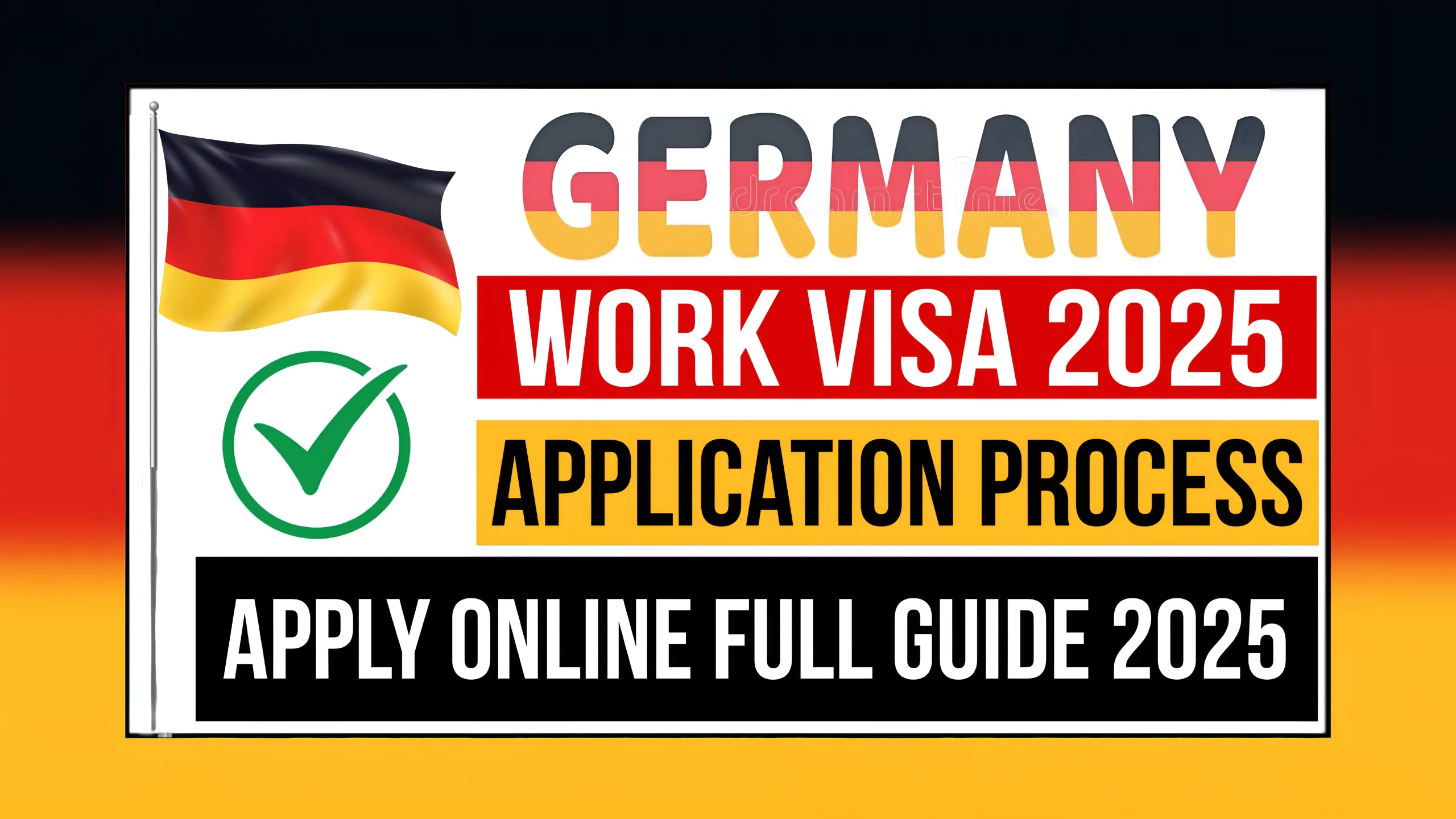Germany Work Visa 2025: Your Comprehensive Guide to Requirements, Process, and Opportunities
The Germany Work Visa 2025 system has undergone substantial reforms to address the country’s growing labor shortages across key sectors like engineering, IT, healthcare, and finance. With over 639,000 job vacancies nationwide as of early 2025, Germany has streamlined its visa processes and introduced new pathways to make immigration more accessible for qualified professionals. This comprehensive guide explores everything you need to know about securing your German work visa this year.
Understanding Germany’s Visa System and 2025 Updates
Germany’s work visa system is designed to welcome non-EU nationals with the qualifications and skills needed to contribute to its economy. The Germany Work Visa 2025 framework consists of several categories, each tailored to different professional backgrounds and employment situations. The most significant changes implemented in 2025 include lower salary thresholds for certain visas, expanded eligibility criteria, and a streamlined online application process that reduces processing times dramatically.

The German work visa is officially known as a National (D) Visa, which allows entry into Germany. After arrival, holders must obtain a residence permit that grants the legal right to work and live in Germany long-term. Think of the work visa as your entry ticket, while the residence permit is your ongoing authorization to remain in the country.
Types of Germany Work Visas Available in 2025
1. EU Blue Card for Highly Skilled Professionals
The EU Blue Card remains one of the most attractive options for highly qualified professionals. To qualify in 2025, applicants need a recognized academic degree (or three years of comparable professional experience for IT specialists) and a job offer with a minimum annual gross salary of €48,300. For bottleneck professions (STEM fields, healthcare, IT, etc.), the threshold is reduced to €43,759.80.
The EU Blue Card offers significant advantages, including a fast track to permanent residence (after 21 months with German language skills or 33 months without), full family reunification rights, and freedom to move within the EU.
2. Skilled Worker Visa for Qualified Professionals
This visa category is designed for those with either a university degree or vocational training recognized in Germany. The key requirement is a concrete job offer from a German employer for a position that requires these qualifications. For those over 45 years old entering the German job market for the first time, the job must offer a minimum annual gross salary of €53,130.
3. Opportunity Card (Chancenkarte)
Introduced in June 2024, the Opportunity Card represents a revolutionary approach to German immigration. It allows skilled non-EU nationals to enter Germany without a prior job offer and search for employment for up to 12 months. To qualify, applicants need at least two years of vocational training or a university degree, basic German (A1) or English (B2) skills, and sufficient funds to support themselves. The selection uses a points system that considers language skills, work experience, age, and connection to Germany .
Holders of the Opportunity Card can work trial jobs for up to two weeks at a time and take on part-time employment of up to 20 hours per week while searching for qualified employment.
4. Visa for Researchers
Researchers with a hosting agreement or work contract from a recognized research institution in Germany can apply for this category. The research institute must cover living and travel costs.
Eligibility Requirements for Germany Work Visa 2025
While specific requirements vary by visa category, all applicants must meet certain core criteria:
-
Recognized Qualifications: Academic degrees or vocational training must be comparable to German standards. The Anabin database and Central Office for Foreign Education (ZAB) provide recognition services.
-
Job Offer: Most visas require a concrete job offer from a German employer, except for the Opportunity Card.
-
Financial Stability: Applicants must demonstrate sufficient funds to support themselves without relying on public assistance.
-
Language Proficiency: Depending on the profession, German language skills at least at A1 or A2 level may be required, though IT specialists and some international roles are exempt.
-
Health Insurance: Proof of comprehensive health insurance coverage is mandatory.
Step-by-Step Application Process
1. Secure a Job Offer (Except for Opportunity Card)
Most applicants need to secure employment with a German company before applying. The job must match qualifications and meet salary thresholds.
2. Check Qualification Recognition
For regulated professions (healthcare, engineering, teaching), applicants must have their qualifications recognized through the appropriate German authorities. Non-regulated professions may not require this step.
3. Submit Visa Application
Applications are submitted through several channels:
-
Online Portal: Germany has expanded its online application system through the Consular Services Portal, allowing applicants to upload documents and complete forms digitally.
-
German Embassy/Consulate: In-person applications are still accepted where online services aren’t available.
Required documents typically include:
-
Valid passport
-
Completed application forms
-
Passport photos
-
Job contract or offer letter
-
Qualification certificates
-
Proof of health insurance
-
Proof of financial means
4. Attend Biometric Appointment
After submitting documents, applicants must provide biometric data (fingerprints and photos) at a German mission.
5. Wait for Approval and Receive Visa
Processing times typically range from 1-3 months, though fast-track options can reduce this to approximately 4 weeks.
Costs Associated with Germany Work Visa 2025
The financial requirements for obtaining a German work visa are relatively modest:
-
Visa application fee: €75
-
Residence permit/EU Blue Card: €100
-
Settlement permit (permanent residence): €113-€147
Fast-Track Options for Skilled Workers
Germany offers an accelerated procedure for skilled workers (§ 81a AufenthG) that can significantly reduce processing times. Employers can initiate this process by paying a €411 fee and providing a power of attorney from the prospective employee. The fast-track procedure ensures that recognition of qualifications and approval from the Federal Employment Agency are completed within streamlined timelines.
Recent Reforms and What They Mean for Applicants
The 2025 German immigration system reflects significant reforms implemented through the Skilled Immigration Act:
-
Digitalization: The expanded online application system allows for smoother processing and reduced paperwork.
-
Relaxed Qualification Requirements: Professionals with two years of practical experience in non-regulated careers can now avoid official recognition requirements.
-
Recognition Partnerships: Employers can now hire skilled workers before their qualifications are fully recognized through formal recognition partnerships.
-
Family Reunification: EU Blue Card holders enjoy privileged family reunification rights, with relaxed requirements for livelihood security and living space.
Tips for Successful Application
-
Start Early: Begin the recognition process for qualifications as soon as possible, as it can take 1-3 months.
-
Secure Proper Documentation: Ensure all documents are properly certified and translated when necessary.
-
Utilize Employer Support: German employers can significantly expedite the process through pre-approval requests with the Federal Employment Agency.
-
Consider Regional Differences: Application procedures may vary slightly between different German states and cities.
Pathways to Permanent Residence
Most temporary residence permits can lead to permanent settlement (Niederlassungserlaubnis) after several years of continuous employment and contribution to the social security system. EU Blue Card holders can qualify for permanent residence in as little as 21 months with German language skills at B1 level or 33 months with A1 level.
Conclusion
The Germany Work Visa 2025 system offers unprecedented opportunities for skilled professionals worldwide. With streamlined processes, expanded categories like the innovative Opportunity Card, and clear pathways to permanent residence, Germany has positioned itself as one of the most attractive destinations for global talent. By understanding the requirements, preparing documentation carefully, and utilizing available fast-track options, qualified professionals can successfully navigate the immigration process and build a rewarding career in the heart of Europe.
As Germany continues to address its significant labor shortages, now is an ideal time to explore employment opportunities in this economic powerhouse. Whether you’re a highly skilled professional qualifying for the EU Blue Card or an aspiring immigrant using the Opportunity Card to seek new possibilities, the Germany Work Visa 2025 program provides accessible pathways to fulfill your European career ambitions.


